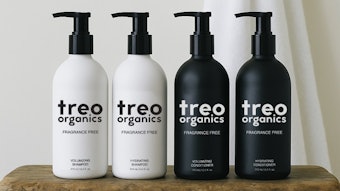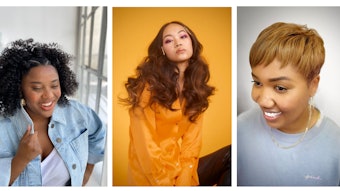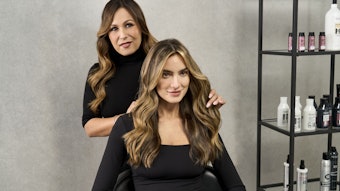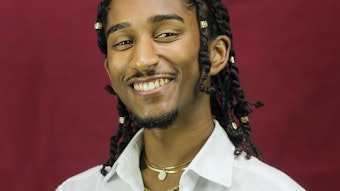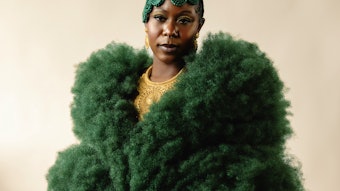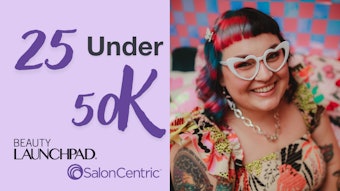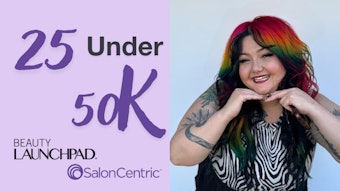In honor of Black History Month, we wanted to lift up Black hairstyling icons that have left their indelible mark on not just the industry but the world as a whole.
From groundbreaking entrepreneurs to compelling educators, these seven men and women created enduring legacies that are still touching lives today.
Annie Turnbo Malone, entrepreneur and founder of Poro College
Before there was Madam C.J. Walker, there was Annie Turnbo Malone. She is credited with developing a chemical product, which she later named Poro, to straighten Black hair without the damage caused by other chemical straighteners of the late 19th century. Malone sold her product door-to-door as Black women were denied access to traditional distribution systems. Demand for her product burgeoned and she hired and trained women to serve as local agents at Black churches and women’s clubs. One such recruit was none other than Madam C.J. Walker. In 1918, Malone founded Poro College as a way of empowering Black women both in their careers and in their community.
Madam C.J. Walker, founder of the Madam C. J. Walker Company
Heralded as “the first Black woman millionaire in America,” Madam C.J. Walker was born Sarah Breedlove to former slaves. Her struggle with hair loss inspired the creation of the “Walker system,” which involved scalp preparation, lotions and iron combs. Utilizing the same business model as Malone, Walker sold her products directly to Black women through saleswomen or “beauty culturists” as she referred to them. Her iconic products, including Wonderful Hair Grower, Glossine and Vegetable Shampoo, helped catapult her business. In 1908, she opened a beauty school in Pittsburgh, Pennsylvania, named after her daughter A’Lelia. Her fortune allowed her to donate funds to educational causes, Black charities and scholarships for women at Tuskegee Institute, among other influential organizations in the lives of Black Americans.
Marjorie Stewart Joyner, national supervisor of Madam C. J. Walker Beauty Schools
From cosmetology legislation to the invention of a permanent wave machine to spearheading Black hair education, Marjorie Stewart Joyner was involved in nearly every aspect of the industry. After enrolling in Madam C.J. Walker’s beauty school in Chicago, Joyner became Walker’s protégé and the eventual national supervisor of 200 Mme. C.J. Walker Beauty Schools. In 1924, she helped write Illinois’ first cosmetology laws. She also received a patent for her permanent wave machine in 1928. She was an active participant in the Civil Rights Movement, a member of the Democratic National Committee and a founding member of Bethune’s National Council of Negro Women.
Art Dyson, Black hairstylist and founder of salon chain Soul Scissors
Art Dyson is responsible for heading up Soul Scissors, the first nationwide chain of hair salons and training facilities that catered to Black clients. At one time there were 55 Soul Scissors locations across the United States. Earlier in his career, Dyson developed the “thermal blow-drying” technique by attaching a nozzle to a drier and blowing the hair straight, which gave the hair a straighter, softer look.
Henry M. Morgan, founder Tyler Baber College
In 1933, Henry M. Morgan established Tyler Barber College, the first Black barber college in the United States, located in Tyler, Texas. Though the college closed in the early 1970s, Morgan expanded his locations to several cities across the country and saw hundreds of barbers graduate. Through Tyler Barber College, Morgan gave Black men and women a chance at entrepreneurship during the Great Depression and Jim Crow segregation.
Willie Lee Morrow, Black hair educator and creator of California Curl products
Willie Lee Morrow was both an educator and product inventor for the Black hair industry. In the 1970s, Morrow worked with the Defense Department by traveling around the world to military bases and teaching servicemen how to cut Black hair. He is also the inventor of California Curl, a product created to relax hair in gentle curls. According to Morrow, this style helped inspire the popular Jheri curl style in the 1980s.
Joe L. Dudley, president and CEO of Dudley Products Inc., and founder of Dudley Cosmetology University
Joe L. Dudley is a beauty entrepreneur and educator who focused on the growth of Black salons. Along with his wife Eunice, Dudley ran the Dudley Products Company, which was named a Top 100 Black-Owned Business by Black Enterprise Magazine, and eventually became a multi-million-dollar company. Also, the couple founded and ran Dudley Cosmetology University in Kernersville, North Carolina, and created four schools in the Dudley Beauty School System. His advanced educational program was model after Vidal Sassoon. Dudley helped shape the careers of more than 17,000 professional hairstylists, including John Atchison, Barry Fletcher, Kim Kimble, Michelle Obama’s stylist Johnny Wright, celebrity stylist Timothy Wallace and The Kolour Kulture’s Keya Neal.
